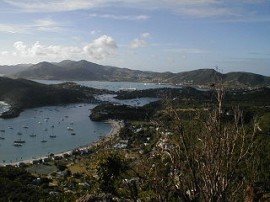
International trade disputes often shine a light on odd behaviour, and the dispute between the United States and the tiny Caribbean island country Antigua and Barbuda is no exception. Originally colonised as a site for sugar plantations, the decline of the Antiguan sugar industry has left it looking for new industries. The internet offers plenty of opportunities, and one of those is gambling. Antigua became host to online gambling businesses appealing to customers around the world and particularly in the United States.
The US, in a peculiar fit of morality, has made gambling on the internet illegal (although not in Las Vegas or on Native American reservations) and has banned its residents from visiting Antiguan gambling sites. This has hurt Antigua badly: employment in the industry there has fallen from 4,000 to 500.
The Dispute Settlement Body of the World Trade Organisation has ruled in Antigua’s favour, and trade retaliation up to a permitted level is now proposed. The nature of that retaliation is intriguing – offering Americans free downloads of material they would have to pay copyright fees for in the US (maybe this is what David Cameron meant when he said that island peoples have “a frame of mind that is more practical than emotional”, as opposed to those over-emotional and impractical continentals living on the land from California to the New York Island) – but the very fact of the ruling is interesting in itself.
The fact is that in the WTO, cases are not won by the strongest country. They are won instead by the strongest argument. When international relations is governed by rules, the weak do not have to cower in the face of the strong but they can stand up for their rights. Antigua, with population 80,000 and GDP $1.2 billion, is protected by membership of the WTO; outside that organisation, it would have no chance of exerting pressure on America, with population and GDP thousands of times the size. The rule of law exists to protect the weak and restrain the strong.
(h/t Andreas Bummel)
